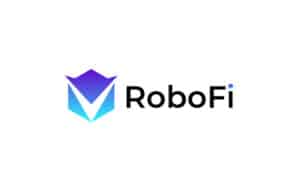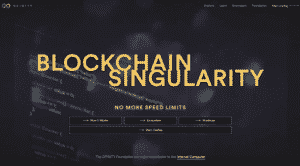Social media sites have been the hallmark of Web 2.0, as they completely revolutionize the way we communicate with each other. While it previously required a lag-filled expensive phone call to communicate across international borders, nowadays, one can communicate seamlessly across continents at virtually no cost. This has been facilitated by popular sites such as Facebook, Twitter, TikTok, and Reddit – the list goes on. However, these sites have not been without their hurdles.
Shortcomings of traditional social media
Everyone knows that social media platforms track user activity, which they utilize for marketing purposes. However, these sites have come under scrutiny in the past after it was established that they sell this data to the highest bidder. The ramifications of this could be endless, as there is no telling how much data an app that you use every day to interact with your close friends and family could have on you.
For instance, Mark Zuckerberg, the CEO of Facebook, was charged with utilizing personal user data to influence world politics. Several such accusations have made headlines over the years. These sites usually stipulate their data tracking in their terms and conditions, which users have to agree to before joining the site. Therefore, not much can be done about it from a legal standpoint. However, this does not mean that these big tech companies will have the last laugh. Enter decentralized social media.
Social media meets blockchain
Since the development of Ethereum, most blockchains nowadays are launching with smart contract capabilities. This means that it is now possible for developers to build projects of various applications on these networks. These projects are collectively called decentralized applications, or dApps in short.
To that end, several developers have come up with various social media dApps. These have the benefit of decentralization, which means no central authority holds all the app’s data. Instead, it is stored in a network of computers comprising the blockchain, thus giving control of data back to the users. The developer of the app may stipulate rules on the ethical use of the site, but they have no further control over it.
Pros
- Decentralized social media prevents the sale of user data to marketers and other entities.
- It promotes freedom of expression as no authority can censor what you choose to post.
- Interactions are secured with end-to-end encryption, which ensures their privacy.
- They utilize cryptocurrencies, which can help facilitate easier crowdfunding for content creators.
- Their code is typically open-source, which facilitates the creation of private servers for content sharing.
Cons
- It is impossible to censor fake news and inappropriate content.
- Content once posted cannot be deleted.
- These sites are prone to 51% attacks.
- In the event the network shuts down, all its data would be lost.
Leading social media platforms built on blockchain
Society2
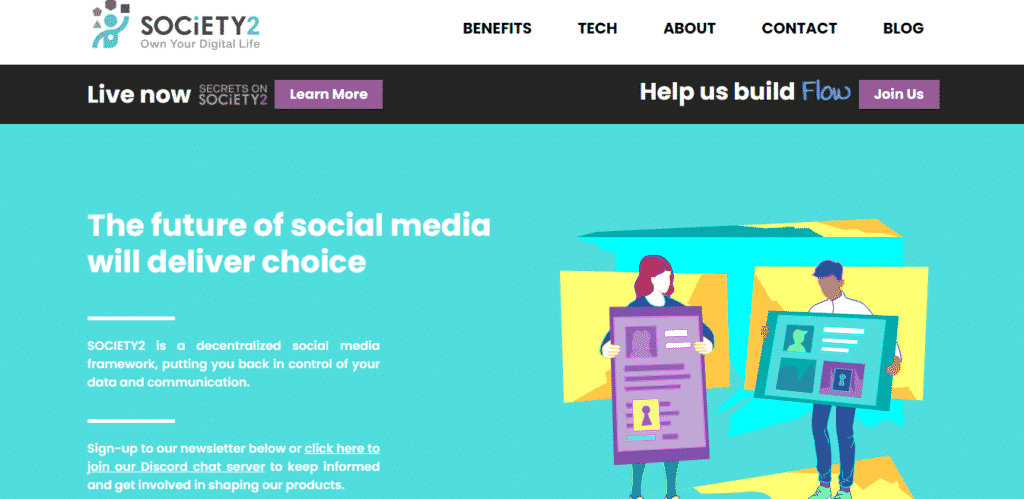
This is a social media dApp hosted on the IOTA blockchain. It promises users control over their own data, as well as the chance to earn IOTA tokens from watching ads. It has a secrets feature that lets you communicate privately with individuals or in group chats. To use this feature, you wouldn’t need to register an account, nor download any software. What’s more, developers can build other networking platforms using its open-source code.
Peepeth
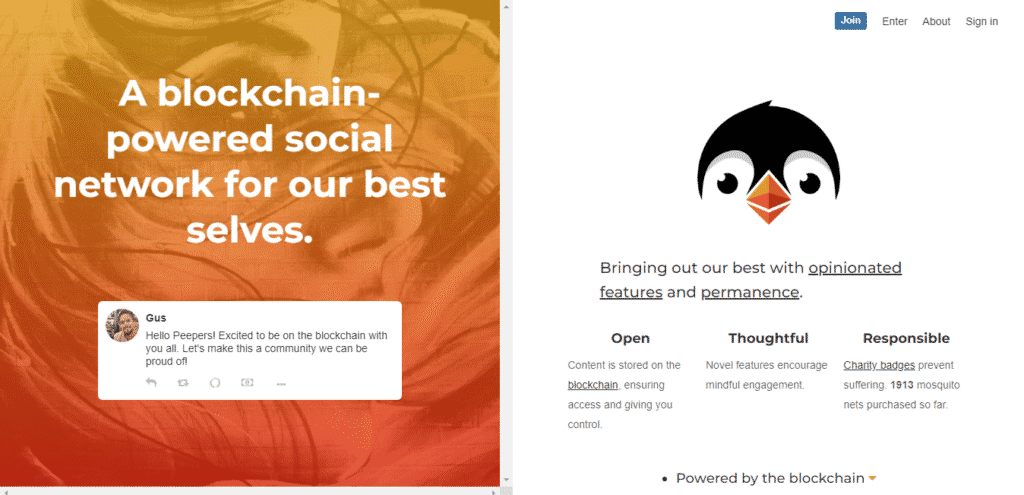
This is a microblogging networking site that closely resembles Twitter. It is hosted on Ethereum, which is a popular destination for dApp developers. However, the network is characterized by high gas fees applicable to Peepeth users. Be that as it may, this platform boasts user anonymity, transparency, and user-controlled data. Since all posts are stored on Ethereum, they cannot be censored or otherwise manipulated.
Sapien
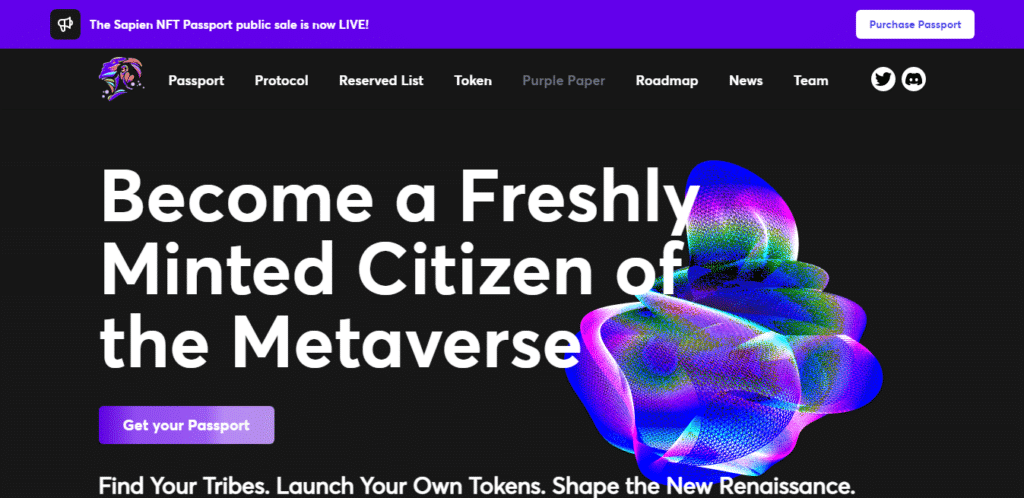
This is a metaverse networking platform hosted on Ethereum. In it, users purchase NFT passports to gain admission. With this passport, one can choose an avatar of famous historical figures, with which they can navigate this metaverse. Once in, they can form self-governing tribes, each of which functions as a decentralized autonomous organization (DAO). Each of these DAOs can mint its own digital tokens and own collective digital and physical assets. Users can also stake SPN tokens on the platform and earn from creating content, posting comments, and voting on posts.
Steemit
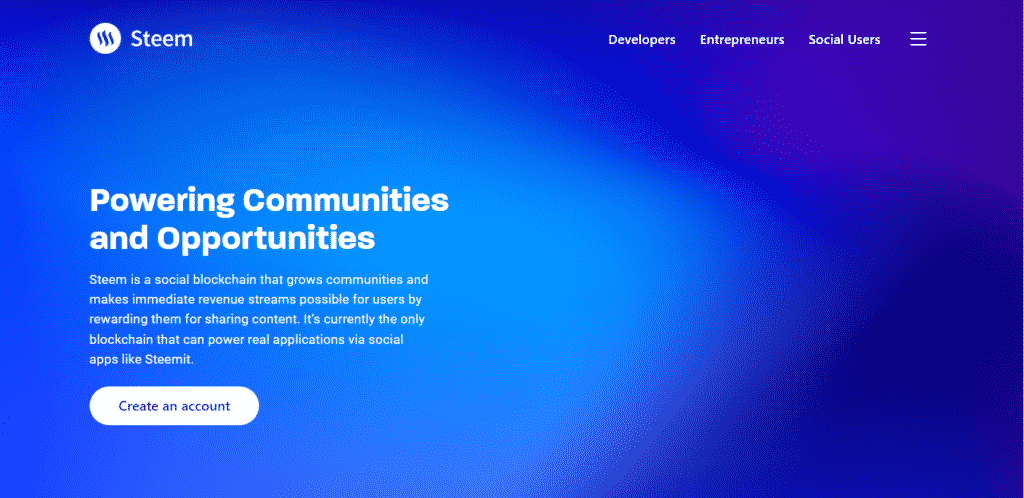
This is a social networking platform hosted on the Steem blockchain. Its most attractive feature is its crypto rewards system for content creators, which is based on the upvotes and involvement their posts elicit. According to its website, more than $59 million worth of smart media tokens (SMT) have been paid out to content creators thus far. It also features free and fast transactions, and its open-source code allows for the creation of various steem-based apps.
Diaspora*
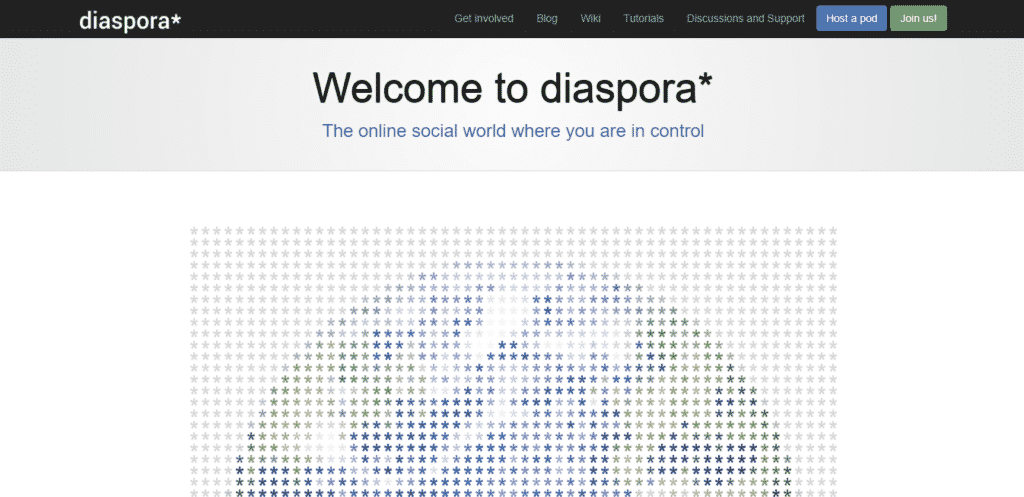
This is a free-to-use decentralized social networking platform. It is made up of various nodes called pods on which user data is stored. Users can choose which pods to register with when signing up. The platform also allows users to create pseudo identities, which promotes their anonymity. They can also limit who sees their data using Diaspora’s Aspects feature. For instance, you can organize your contacts into friends, family, or workmates and choose which group sees what posts.
Conclusion
For all its glory, social media has raised numerous data privacy concerns over the years. It is scary to think about the amount of data an app utilized by millions on a daily basis can have on its clients. Or worse still, the ramifications that data could have if leaked into the wrong hands. Several blockchain-based networking platforms have been launched to combat this. Storing user data in a network of nodes ensures no single entity has control over everyone’s data.

